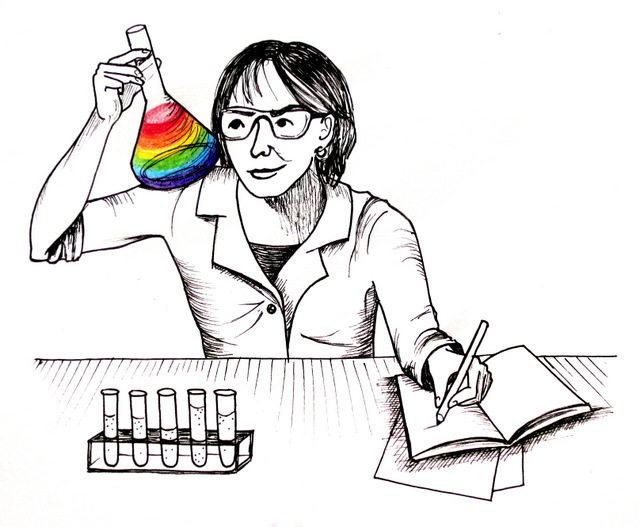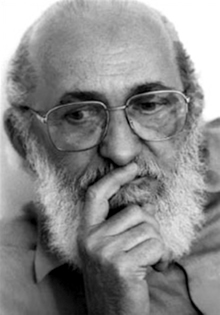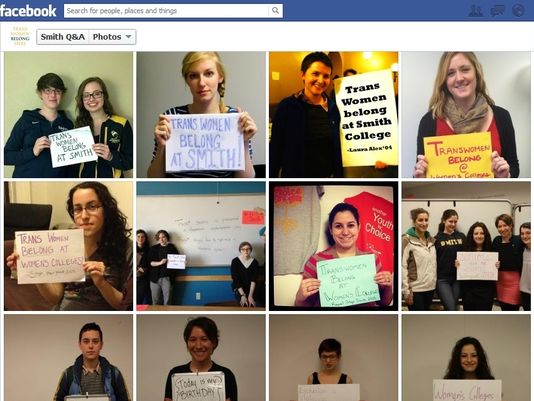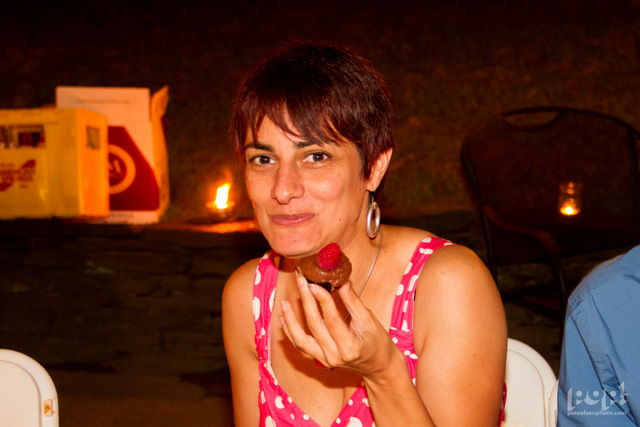Queered Science is a series of profiles meant to highlight queer science and tell you what you need to know about it, for your intellectual edification and so you don’t feel excluded from a major and predominantly heterosexist subset of academia and industry.
Header by Rory Midhani

Dr. Donna Riley is a founding faculty member and associate professor at the Picker Engineering Program at Smith College, the first engineering program at a US women’s college. In 2005, she received an award from the National Science Foundation for her work on implementing and assessing critical and feminist pedagogies in engineering classrooms. She holds a B.S.E. in Chemical Engineering from Princeton University and a Ph.D. in Engineering and Public Policy from Carnegie Mellon University. In 2008 she published Engineering and Social Justice (Morgan and Claypool, 2008), and in 2010 was awarded the NOGLSTP Educator of the Year award for her work on combining social justice work and science pedagogy. She is out both personally and professionally as bisexual, and speaks as articulately about biphobia to the queer community as she does about homophobia to the heteronormative world.
Her work on feminist and critical pedagogy is what originally piqued my interest; we’ve talked before in this column about the tendency of STEM fields to exclude discussion of social justice issues, but Dr. Riley mixes together Paulo Freire, thermodynamics and bell hooks into one happy stew of learning of all kinds.
This year she is not teaching at Smith; instead, she’s actually in Washington serving a one-year stint as Program Officer at the National Science Foundation in the division of Engineering Education and Centers. Even so, she was excited to participate in this series and answered a number of questions for me. They’re so complete, as is, that I’ve left most of them intact for your reading and devouring pleasure. Enjoy!

You got an undergraduate degree in chemical engineering, and a graduate degree in engineering and public policy. How did it feel to be a woman and a member of the queer community in those settings?
I could write a separate volume about my experiences of sexism at Princeton and CMU, and they are many and horrific. So I will just leave that alone and focus here on anti-queer stuff….
In the early ’90s at Princeton, there were only a handful of students who were out as LGB people, and there was one staff member we knew who was just coming out on campus as transgender. Lots of us were scientists and engineers, actually, though I didn’t put my professional identity together with my sexual orientation very consciously. I mostly just wanted to find other queer people. Within the sciences and engineering among our peers and faculty, we were mostly just met with silence. We knew to compartmentalize, and we knew when and where it was safe to be out – and that was definitely not in the engineering building.
Were there any instances in which you felt discrimination, overt or otherwise?
The most overt anti-gay acts in the engineering classroom that I experienced happened on Gay Jeans Day. Our campus had one of these days where to raise awareness about what it is like to be LGB (we hadn’t added the T yet), we asked people who supported LGB people to wear jeans. We advertised this in every mailbox, every signpost, everywhere so no one was clueless about what day it was. And people who normally wore jeans would wear suits, or khakis, a nice dress, anything to show they weren’t gay and didn’t approve. Some of the fundamentalist Christians would make t-shirts that said “love the sinner hate the sin” and wear those with either jeans or slacks, depending on how they interpreted things. I remember sitting in my ChemE classroom waiting for the professor to walk in, most of my classmates in khakis, some with micro-aggressions scribbled on their shirts, adrenaline shooting through my veins, as each year there was typically a conversation where the men would express something homophobic like “No way! Wouldn’t be caught dead wearing jeans,” or whatever. And our professor would stroll in, not wearing jeans either, possibly actually oblivious, or possibly comfortably homophobic. There was utter silence from them on any and all social issues. In science and engineering culture this is called “being objective.” But this was a day that you couldn’t be neutral, and every one of the faculty picked the anti-gay side.
Outside of the classroom I experienced two major incidents of homophobic harassment. The first was at a party my first year, where a guy pressed me up against a wall and ordered me to “suck his dick to prove to him I wasn’t a dyke.” His language. I got away from him and got myself home. It didn’t help that I was not yet entirely out to myself at that point. My senior year, the night Bill Clinton was elected, I was walking with two gay friends back to our dorms, jubilant, when a group of ROTC guys came up and yelled “NO MORE GAY RIGHTS” at us. It was a little weird, kind of a non sequitur, though it was clear they were drunk and pissed that Clinton had been elected. As we were looking at each other apprehensively, trying to figure out what we would do if they attacked us, they thankfully moved on, and we let out a collective sigh of relief and went home. We wrote a letter in the school newspaper documenting and protesting the way we were treated.
Within the LGBT community I have experienced biphobia in every campus community I have been a part of. In undergrad I was publicly called a “player to be named later” by a lesbian and in grad school publicly called a “poseur” by a gay man. Later at Smith a lesbian professor referred pejoratively to a colleague in Mathematics as a “bisexual atheist” when the conversation was about the professor’s objections to having a Dean of Religious Life at Smith. I still don’t know what her bisexuality had to do with anything, except to communicate its unacceptability.
Many scientists describe the difficulty of deciding to come out, knowing the heteronormative culture of the scientific community. What helped you make the decision to come out, and what kind of responses did you get from colleagues?
In college and grad school I was very out on campus as an activist, so my peers knew because it was widely public, but it rarely came up in classes for any kind of reaction from them. In grad school my dissertation advisers and other faculty with whom I had a closer relationship knew my partner was a woman and I am fairly certain we attended departmental events together. My advisers each recognized my partner in the same way they would recognize a student’s significant opposite sex relationship and that really helped me feel welcome.
I came out in my academic writing explicitly in 2003 because I knew that situating myself relative to relations of power in engineering, in academia, and in society as a whole was essential to the project of introducing critical pedagogies in my engineering classes. I was already out to a lot of students. Others assumed I was queer because of my use of gender neutral pronouns, and some picked up on a rainbow ribbon I posted in my office.
I choose again and again to come out and be out. For me it is a matter of both personal integrity and political commitment. I have to be who I am, and I have to work so others can be who they are. This is risky, and it comes at a cost, but I believe the costs of being closeted are much greater, both personally and politically.
You describe your work as liberative pedagogy. What does this mean in practical terms, in the classroom and in interactions with students?
I actually treat this as an open question in my classrooms – I present some ideas from the family of critical or liberative pedagogies – feminist, anti-racist, queer, post-colonial/decolonizing, and others – and ask what it would mean for students to find a classroom liberating – from what? To what? Students are active participants in their own education; I am trying to do away with what Freire called the “banking system” of education, still so common in the sciences and engineering, where professors are assumed to hold the knowledge, make “deposits” in students’ minds, then ask them to regurgitate knowledge on tests. I am instead trying to have students bring what they already know from the authority of their experience, share knowledge among the class, and translate theory into action for change in some way. Together we question the silences in our field around race, class, gender, ability, sexual orientation, gender identity and expression, and other forms of identity, and ask what we are learning about diversity when it cannot be discussed in professional science and engineering settings.

via ideiacriativa.org
You’re a founding faculty member at the engineering school at Smith, the first women’s college to have an engineering degree. What was that process like?
It has been a huge thrill and the fulfillment of a life’s dream to get to teach engineering at Smith. I wanted to leverage the liberal arts context in my own work, and it was probably the only place in the country I could have gotten away with testing out critical pedagogies in engineering classrooms, and integrating ideas from gender studies, sociology, and ethics in my engineering work.
At the same time, the persistent and pernicious trans-phobia of Smith as an institution has been a huge disappointment to me. Smith that simultaneously is not welcoming to trans* people really pours bleach on the rainbow of having an engineering program at a women’s college. We have had trans* and genderqueer students in engineering, but the rhetoric around being a women’s engineering program against the backdrop of Smith’s very public transphobia becomes very retrograde, and misses a tremendous opportunity to move the conversation forward.

via usatoday.com
While overt sexism and homophobia are less common than historically, they still play out in ways that are subtle and, therefore, insidious and hard to combat. How do you see this happening in the sciences, and how do you deal with it?
One of the biggest sources of sexism and homophobia is lodged in the epistemology of science. How we think, and what we think, matter in determining what we know and don’t know, and affects our workplace interactions in very negative ways. We think that we eliminate bias by keeping our “personal lives” – some aspects of ourselves – out of the lab, classroom, or office. But actually this is how we allow implicit bias to seep in and saturate everything we do, because that which is male, straight, white, able-bodied, monied, is not left behind in the practice of science and engineering – it is just so normative that lots of us don’t notice.
I have learned that talking about these issues and building solidarity with like-minded others is the only way we can ever address them. Ultimately scientists and engineers have to be able to think outside the epistemological boxes we’ve been trained into to understand diversity and social justice. Cultural change takes a lot of hard work, it takes talking to people and organizing — skills typically not in our wheelhouses as scientists and engineers.
What do you envision for the future? If you could see your work come to fruition, what would that mean to you?
I dream of various incarnations of science shops or community-based research that are really rooted in community more than university; I dream of an engineering firm founded on a cooperative model that does projects in the public interest and in the interest of social justice; I want to develop more around the notion of feminist engineering ethics, to see what new models of social justice work in engineering might emerge. I want engineers and scientists to get directly involved en masse in the conversation about national priorities and be part of a shift away from militarism and policies that line corporate pockets to a more just, peaceful and sustainable future in the US and the world.

What would you say to young, queer-identified women just beginning a career in the sciences?
You’re not alone. See what community you find in NOGLSTP and oSTEM, and take part in MentorNet. Look for LGBT groups within your professional societies and join up early (engineering doesn’t have these yet – we need people to found them!). Be active in non-science LGBT groups too. Ask what you can do to contribute to the work.
And follow your passion. It is impossible to predict how careers turn out – you cannot plan a career trajectory in much detail at all, but if you do what you are passionate about you will develop the building blocks you need later to discover or put together the next thing – and you will create the sense that it has all led up to this…







